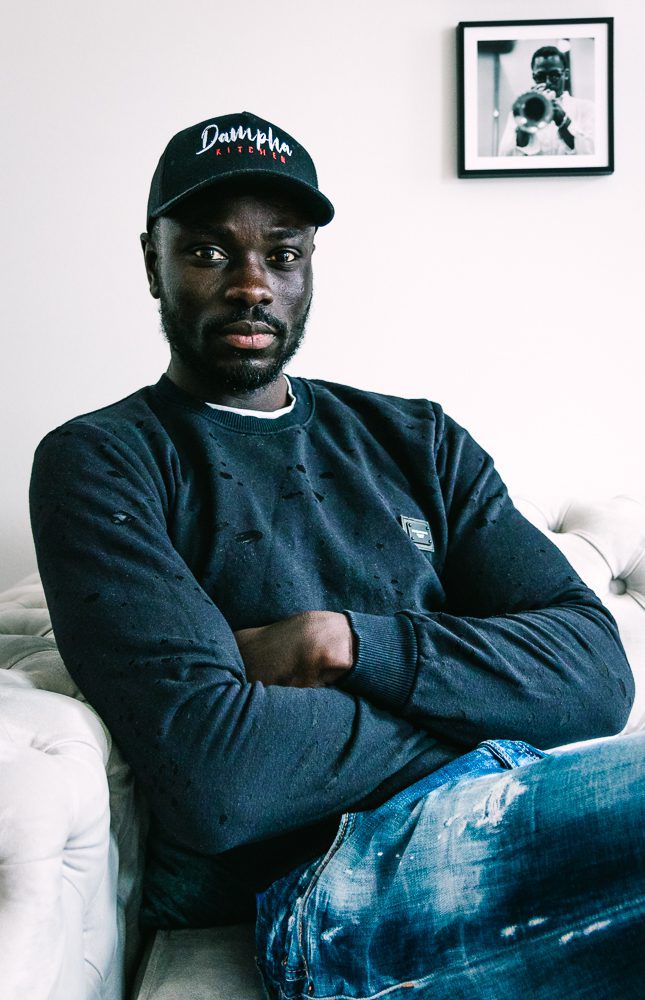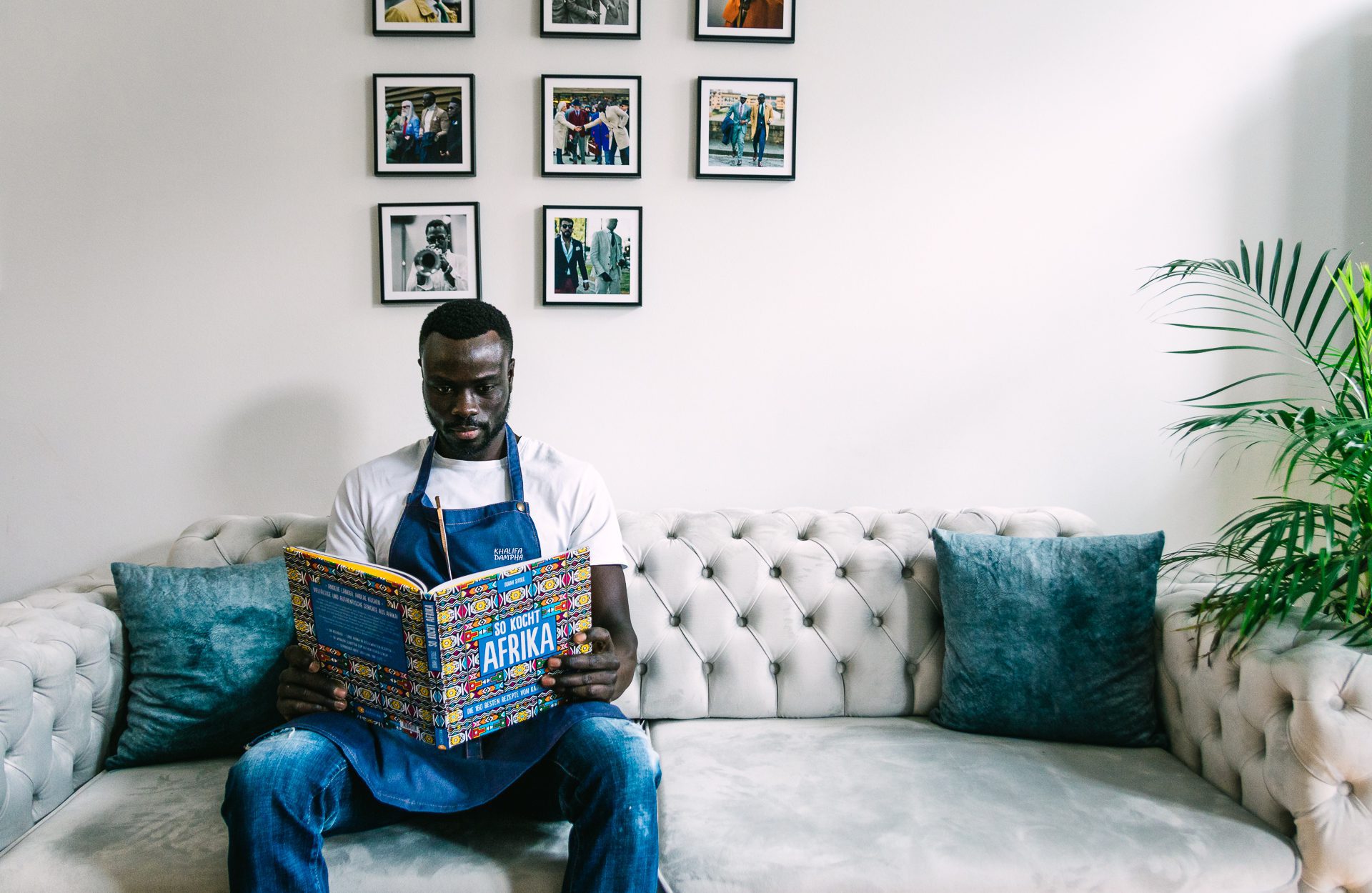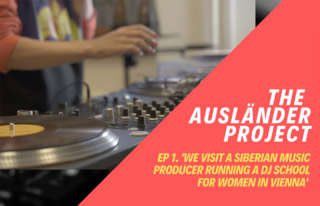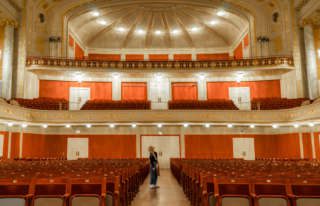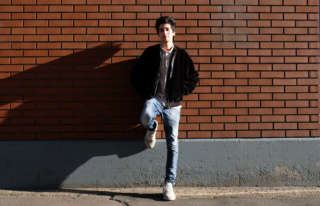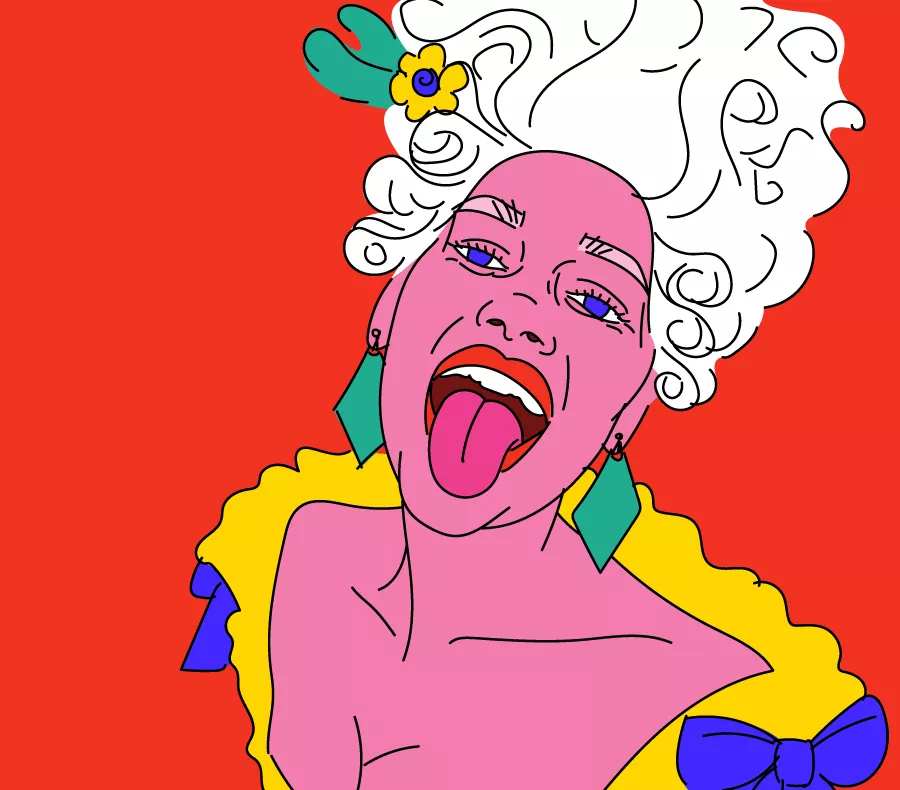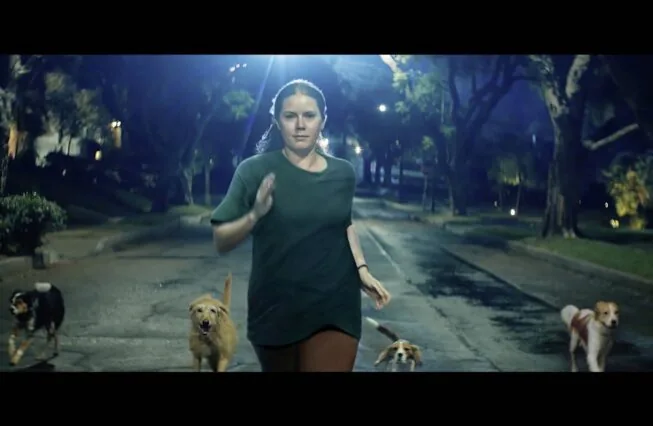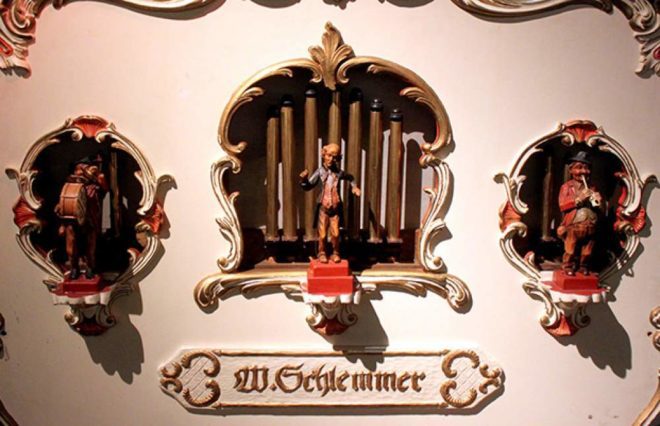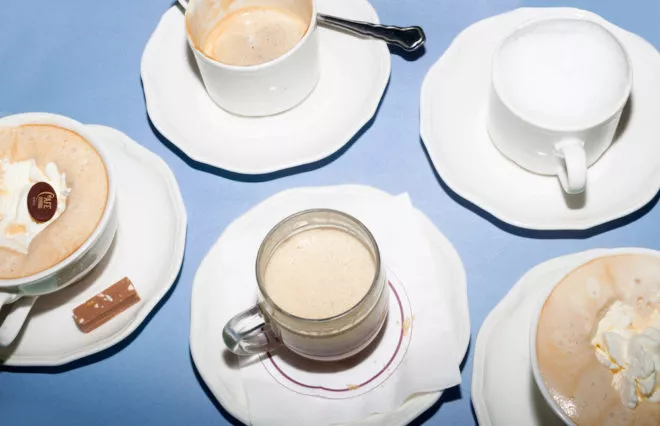After all, we’re all Ausländer somehow, right?
Meet this week’s Ausländer, Khalifa Dampha. During the Corona fun and games, he simply decided to become a professional chef and used his newly found free time to start his Gambian and Spanish fusion pop-up kitchen, Dampha Kitchen.
On weekends, he’s renting a kitchen space and taking orders via Instagram DMs, and he’s already got plans to open a restaurant in his sights.
We had a little chat with the self-made cook about how he started out in the city, his love for cooking and the importance of going your own way.
Vienna Würstelstand (VWS): How did you actually end up in Vienna?
Khalifa Dampha (KD): It was in 2011; I was born in Spain, in Girona, north of Barcelona.
When I was 21, I felt like I wanted to do something different. I’m from a small town and it was getting boring.
I wanted some challenges, to learn a new language and meet new people. My uncle has been living in Vienna for about 20 years, so I just asked him if I could visit and he was like, ‘Of course, Vienna is a great city.’ And so I simply came here.
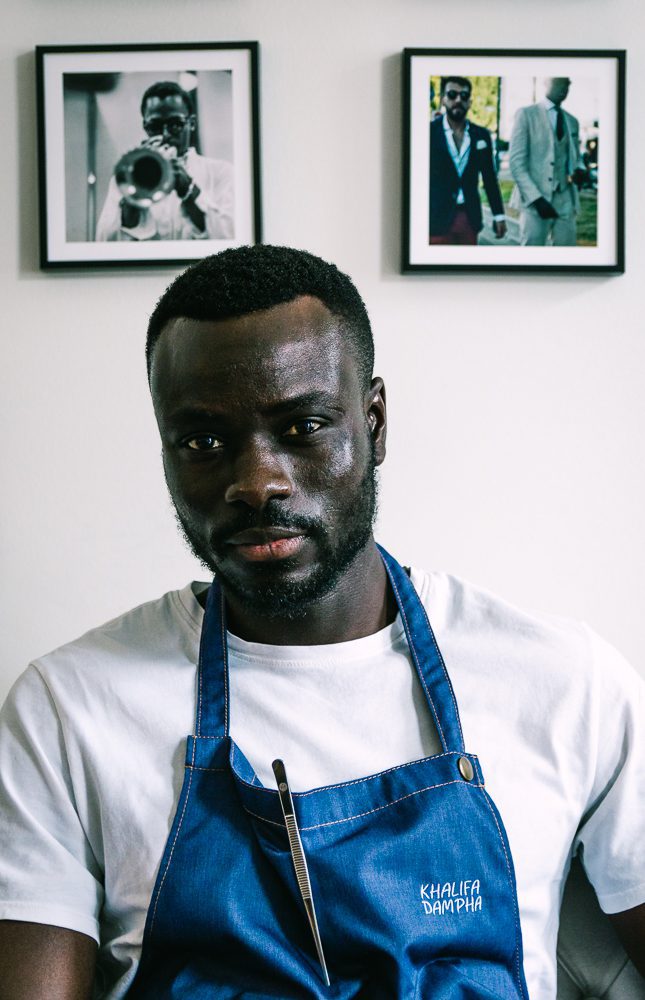
VWS: And what were the first things you did upon arriving?
KD: I went outside a lot, hit the gym and started meeting new people.
After three weeks, I found a job in a Mexican restaurant. I’m now using the kitchen of the same restaurant for Dampha Kitchen. I worked there from November 2011 until April 2012, improved my German and then started at Vapiano, where I worked for three years. I was also doing some side jobs at the same time, such as modelling and working as a doorman.
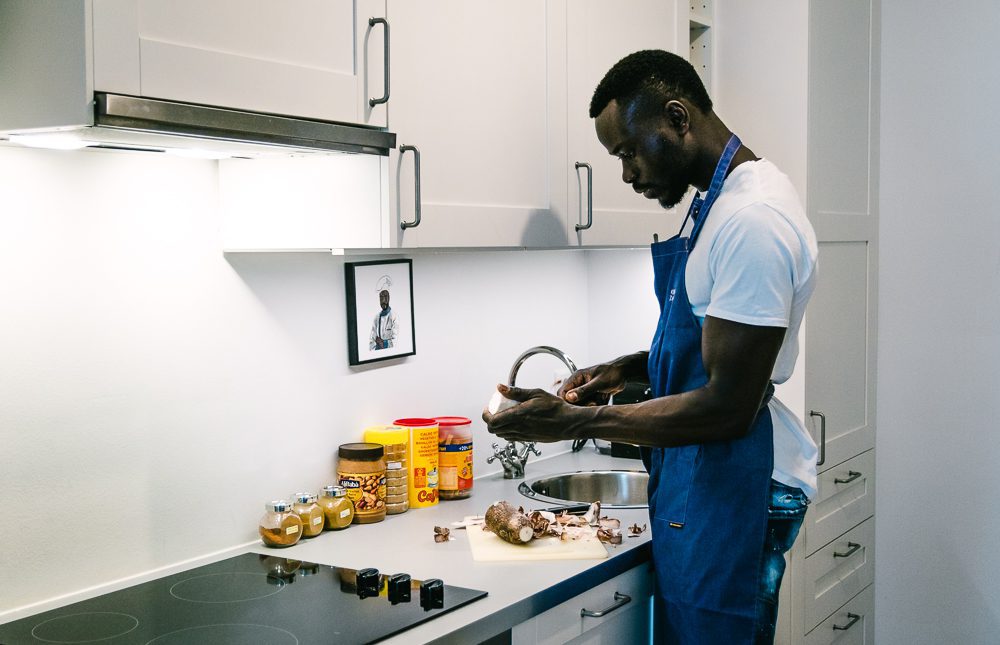
VWS: How did you learn German?
KD: I attended a German class.
VWS: What’s your favourite Viennese word/phrase?
KD: Passt scho!
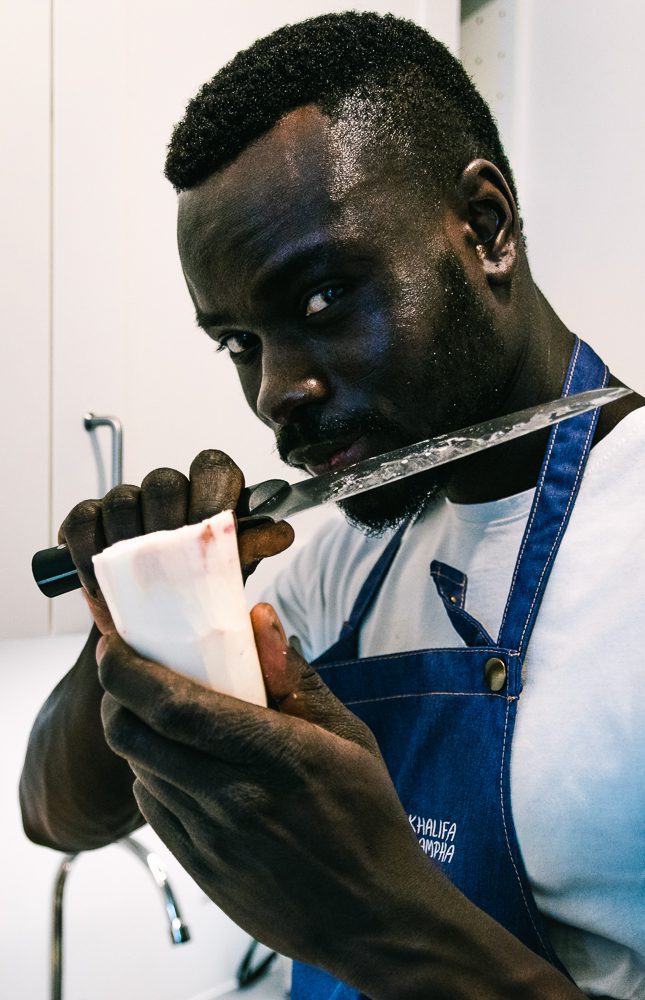
VWS: Did you find it difficult to integrate into life here?
KD: Not at all. It’s a little different for me; I was born in Europe, so there’s another mentality going on, which made it easier for me to integrate here.
Like I said, I found a job after three weeks and made some friends; everything happened quite fast. Also, I have no problem talking to other people, which I was doing a lot of, too.
VWS: What are the differences between Vienna and Spain?
KD: Well, in Spain it’s always warm. I was living 20km from the sea, had fresh fish, lots of sunshine.
The people there are a little more friendly and open. But, of course Vienna is great too, otherwise I wouldn’t have stayed here for 9 years. I’m happy here. I think the weather really bothered me the most, especially at the beginning, but now it’s better. And if I can’t stand it, I can always go to Spain for a bit.
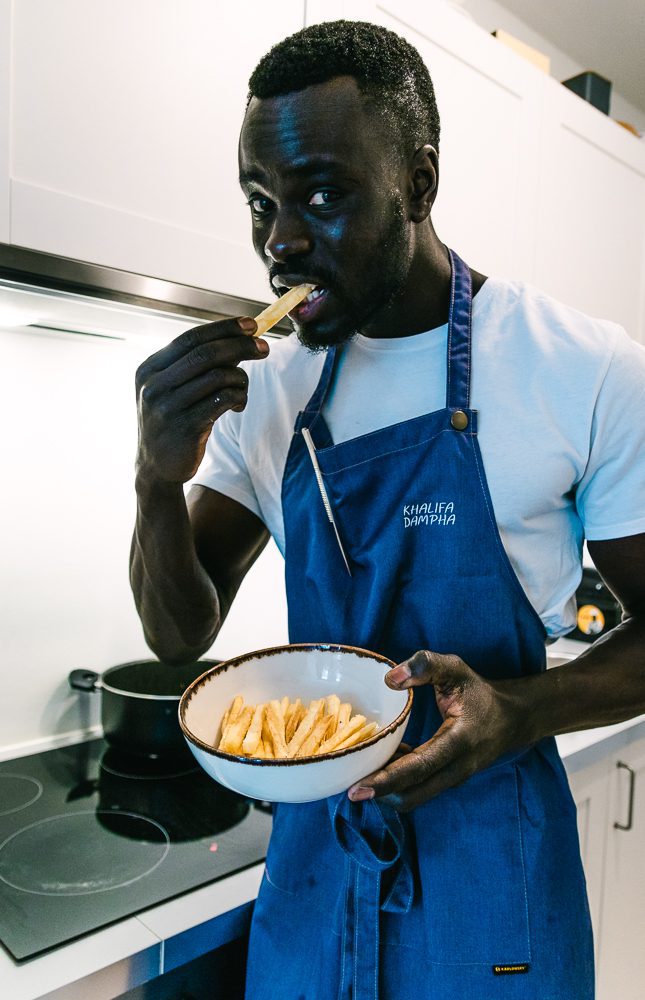
VWS: And what about Gambia?
KD: It’s totally different. The people there don’t have a lot of money, but they’re very happy, nonetheless. I like that very much.
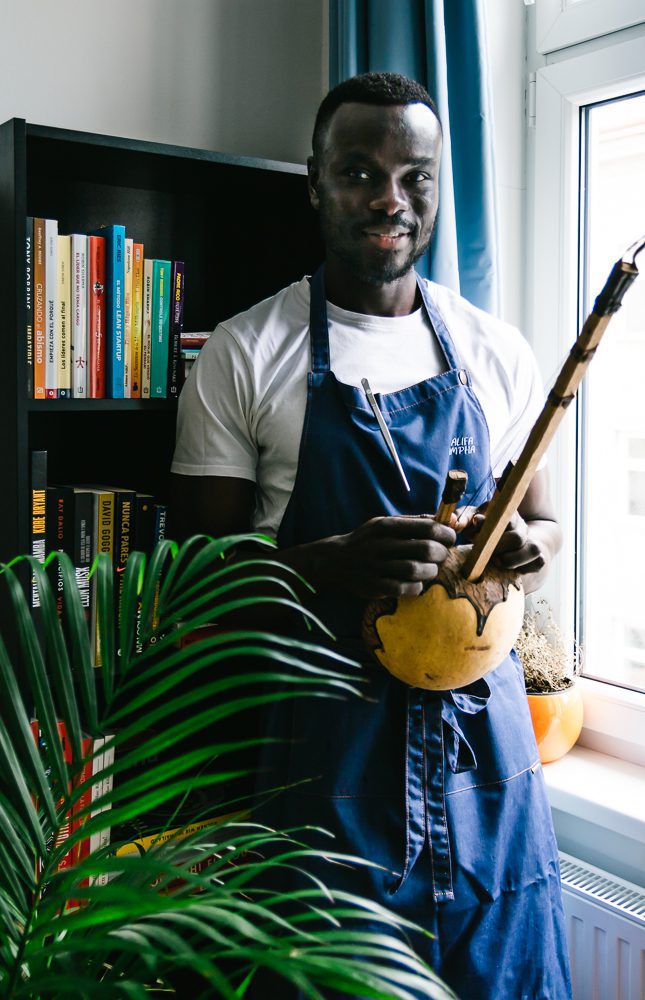
VWS: Tell us about Dampha Kitchen. How did you start and how’s it going so far?
KD: I was already cooking back in Spain. I moved out from my family home when I was 18 and had to make my own food.
I’ve always been interested in cooking and when the first lockdown started, I was at home thinking – why don’t I do my own thing instead of working for somebody else?
It worked out from the beginning, and is still going great. The people here in Vienna seem to enjoy it – 90% of my customers are Austrian.
I think people want to try new things. I come from Spain and my parents are from Gambia, so I want to cook food from both of these cultures, and people are interested in this fusion.
They might not have tried any of the dishes before, but they like the story behind it, so they try it.
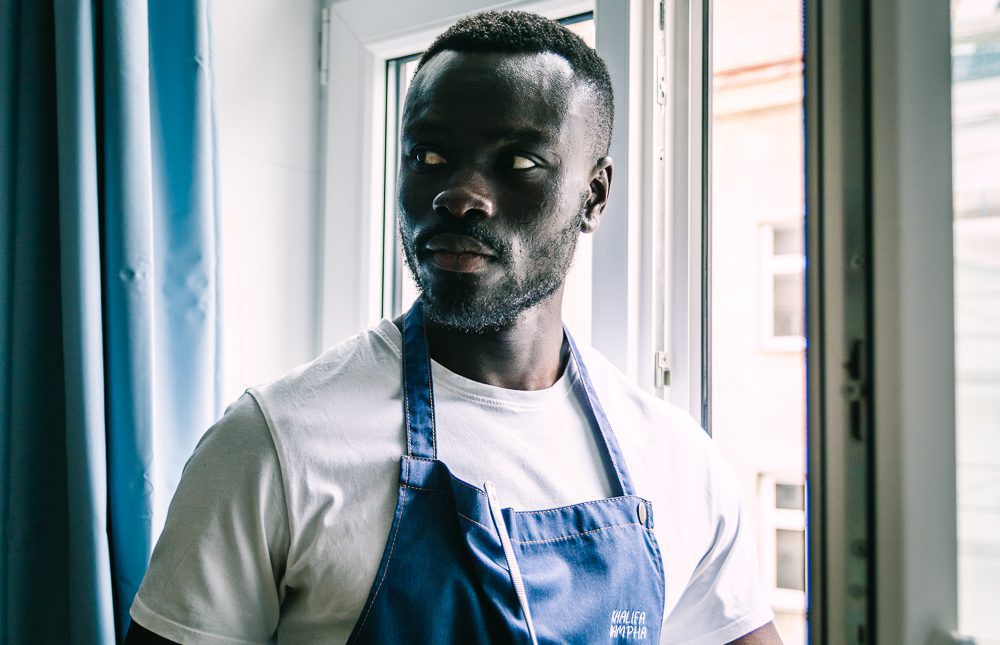
VWS: What does your daily business look like at the moment?
KD: During the week, I cook, try out new dishes, do social media stuff, photo shoots and buy all the ingredients I need for the weekend when I’m working. I also read a lot, especially motivational books.
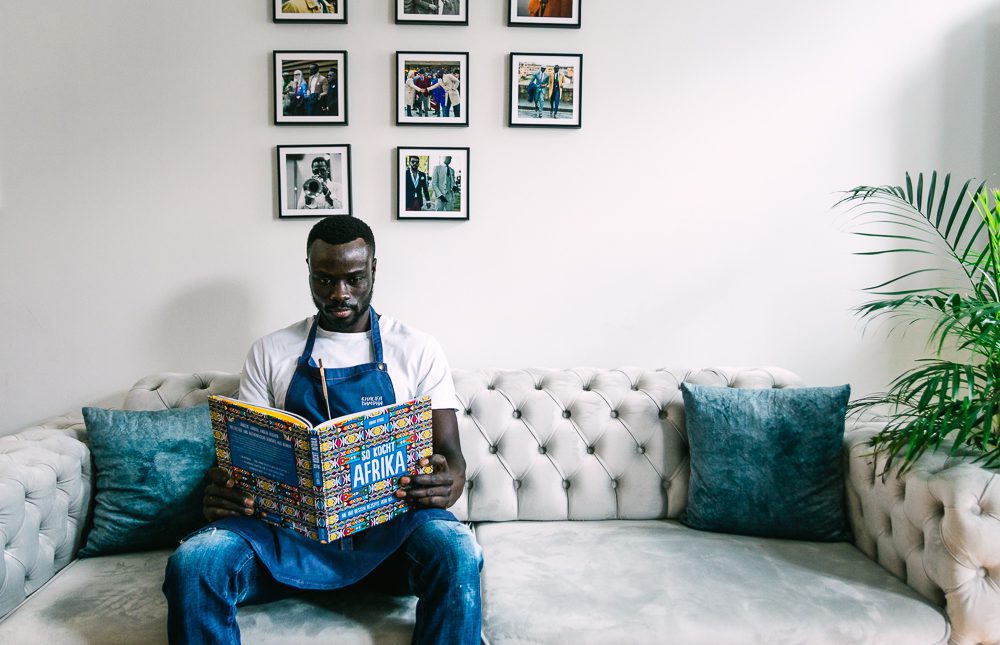
VWS: What are your plans for the future?
KD: The plan is to open up my own small restaurant this year. That would be my dream.
VWS: Do you have any advice for people who want to make it on their own?
KD:
People are gonna try talk you out of it, anyway. Your family might not believe in you, your friends might not believe in you. It was like that for me, but I really wanted to try it, so I did. And now those people are silent.
Our mind wants the comfort zone and the easy way – this makes it difficult. But go your own way, because if you don’t, maybe when you’re retired, you will ask yourself why you didn’t do the things you wanted to do.
